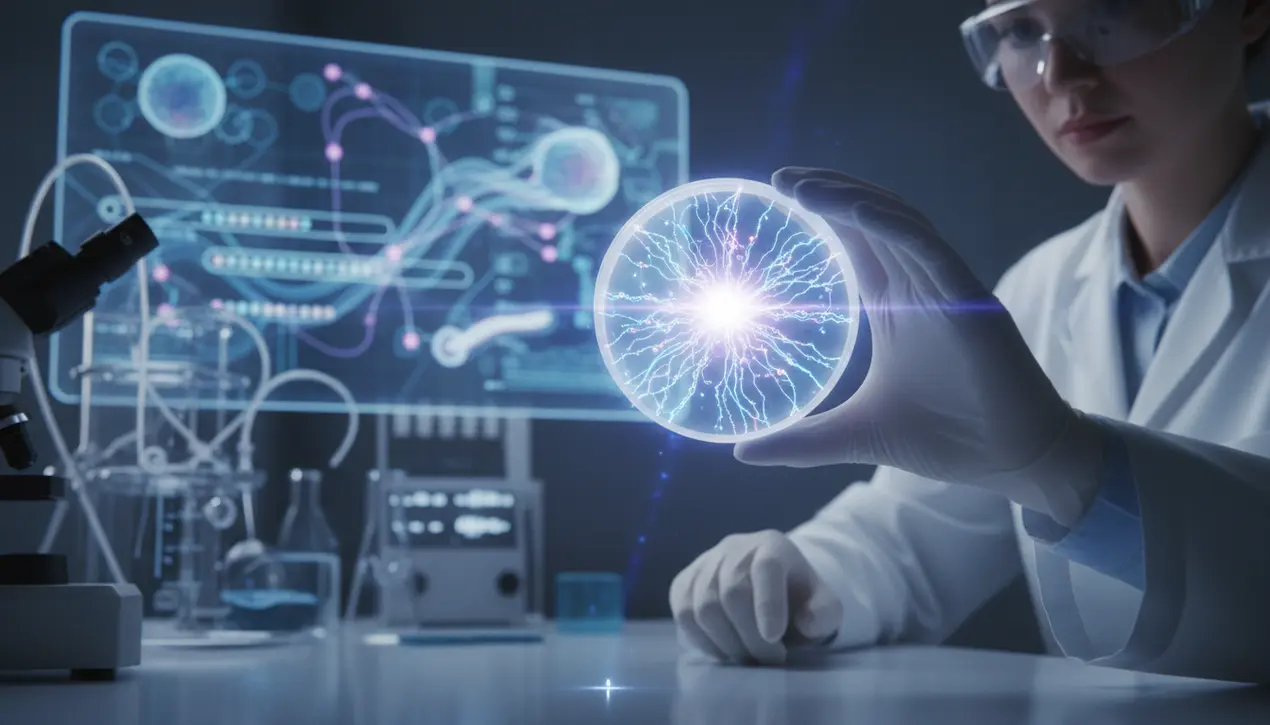
Scienceneuroscience
Scientists Engineer Adaptive, Brain-like Learning in Bacterial Nanopores
KE
Kevin White
2 hours ago7 min read
Scientists at the École Polytechnique Fédérale de Lausanne (EPFL) have engineered a form of brain-like learning within biological nanopores, a discovery that bridges the gap between living systems and computational hardware. Published in *Nature Nanotechnology*, the research centers on the controlled manipulation of the bacterial pore aerolysin.The team successfully decoded the previously enigmatic behavior of these molecular gates—specifically the phenomena of rectification (preferential ion flow in one direction) and gating (the opening and closing of the pore)—revealing that these are not random events but are governed by the precise arrangement of the pore's internal electrical charges and their interaction with ions. By mapping this electrostatic environment, the researchers were able to construct synthetic nanopores that do not merely conduct ions passively.Instead, they can dynamically adapt their conductive state based on their ionic history. This adaptive mechanism is analogous to synaptic plasticity in the human brain, where neural connections are strengthened or weakened through experience to enable learning and memory.The breakthrough has profound implications, heralding a potential shift from traditional electronics to ultra-efficient, ion-based computing. Such systems would process information using biological ions like potassium and sodium, potentially leading to processors with drastically lower energy consumption than current silicon-based technology.This discovery also accelerates the development of advanced neuromorphic systems and bio-inspired computing. Practical applications could include 'smart' diagnostic chips capable of learning to identify the unique electrochemical signature of disease markers, or intelligent drug-delivery platforms that adapt in real-time to the body's metabolic state. This work in synthetic biology demonstrates that by reverse-engineering fundamental biological components, we can not only deepen our understanding of cognition but also build a new generation of adaptive, intelligent devices from the ground up.
#research & breakthroughs
#bio-inspired computing
#bacterial nanopores
#ion-based processors
#brain-like learning
#featured
Stay Informed. Act Smarter.
Get weekly highlights, major headlines, and expert insights — then put your knowledge to work in our live prediction markets.
Related News
© 2025 Outpoll Service LTD. All rights reserved.
